
PPI & Full Size Matrix Keyboard
A full size keyboard kit for your RC2014 system, for use with 5 pin Cherry compatible switches.

A full size keyboard kit for your RC2014 system, for use with 5 pin Cherry compatible switches.
PPI Code: DB104
Keyboard Code: DB105
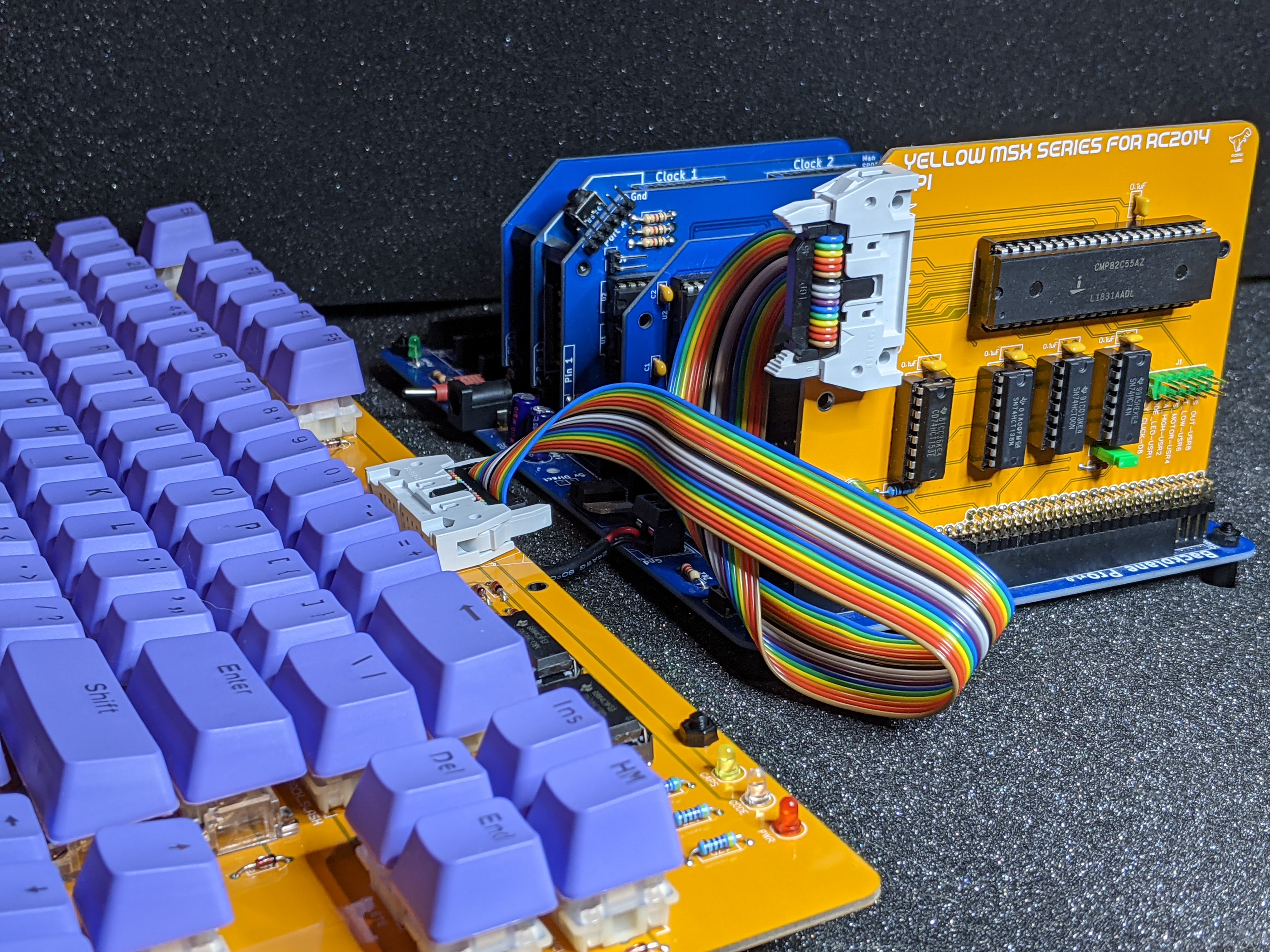
A full size keyboard kit for your RC2014 system, for use with 5 pin Cherry compatible switches, giving your kit that perfect clicky keyboard.
With diodes associated with every switch, it possible to identify all multi key press combinations - no ghost keys.
| Count | Name | Designator |
|---|---|---|
| 5 | 0.1uF | PPI-C1,C3,C4,C2,C5 |
| 1 | 1N4148 | PPI-D1 |
| 1 | EXT-BUS | PPI-J1 |
| 1 | M1-WAIT | PPI-J2 |
| 1 | MSX-KYB | PPI-P1 |
| 1 | 82C55 | PPI-U1 |
| 1 | 74HC138 | PPI-U2 |
| 1 | 74HC00 | PPI-U3 |
| 1 | 74HC153 | PPI-U4 |
| 1 | 74HC74 | PPI-U5 |
| 1 | Right Angle 2x20 Header | PPI |
| 1 | Right Angle header 1x20 | PPI |
| 2 | 14 POS IC SOCKET | PPI |
| 2 | 16 POS IC SOCKET | PPI |
| 1 | 40 POS IC SOCKET | PPI |
| 1 | PCB | PPI |
| 2 | 0.1uF | KEYBOARD-C1,C2 |
| 81 | 1N4148 | KEYBOARD-D1-D81 |
| 3 | 3mm LEDS | KEYBOARD |
| 1 | IDC Socket | KEYBOARD-P1 |
| 3 | 470 Ω | KEYBOARD-R2,R3,R1 |
| 1 | 10k Ω x 8 | KEYBOARD-R4 |
| 2 | 74HC138 | KEYBOARD-U2,U1 |
| 1 | PCB | KEYBOARD |
Although this kit is designed to work under MSX’s software, it can be used in a stock RC2014 system with a correctly configured RomWBW ROM image.
See RomWBW for details on configuring and building a version of RomWBW for keyboard function.
This project includes both the keyboard kit and the PPI interface board kit.
Please note, this kit does not include switches and keycaps. You can choose to source these yourself, or purchase the Keyboard caps here and compatible switches here
Its important that the correct rainbow 16 IDC cable is used. It needs to be a ‘straight thru’ type - as per image below.
My personal recommendation is solder all the passive components first, then the sockets and IDC connector.
You will certainly want to solder the diodes on the keyboard before doing the switches.
Mount the switches last – you should get a satisfying click as you push the switch into the board - but be careful that both pins have come thru cleanly. The pins are fairly thin and easy for them not to align and to be bent.
Start with just one or two switches first – push in, then check pins, then solder. Move onto a next set of switches. Once you are more comfortable, go for bigger batches - just keep an eye on the pins.
Once all the soldering is done, you can move onto mounting the stabilizers.
To assemble the stabilizers, you can use the following images to get an idea of how they go together.
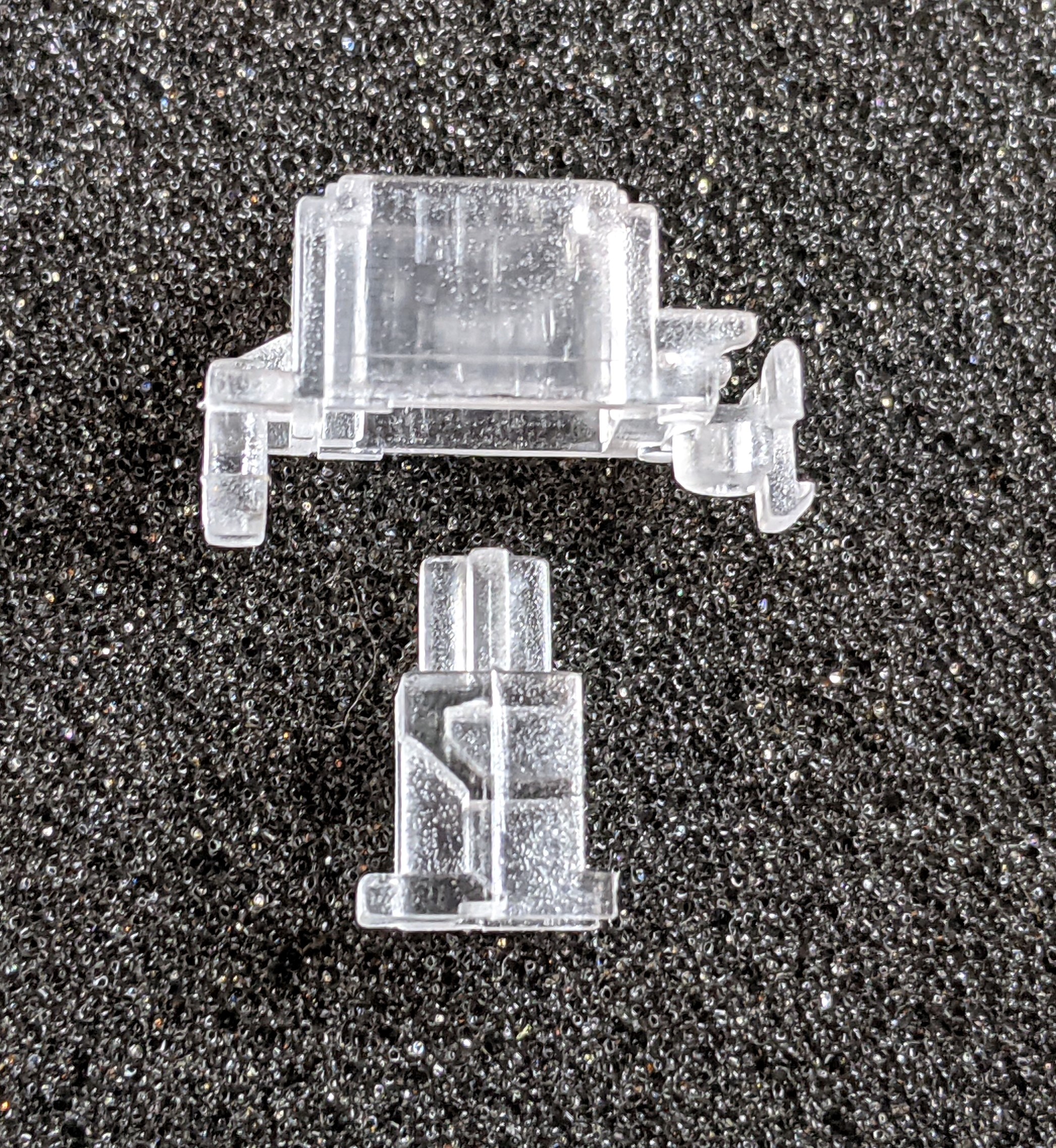
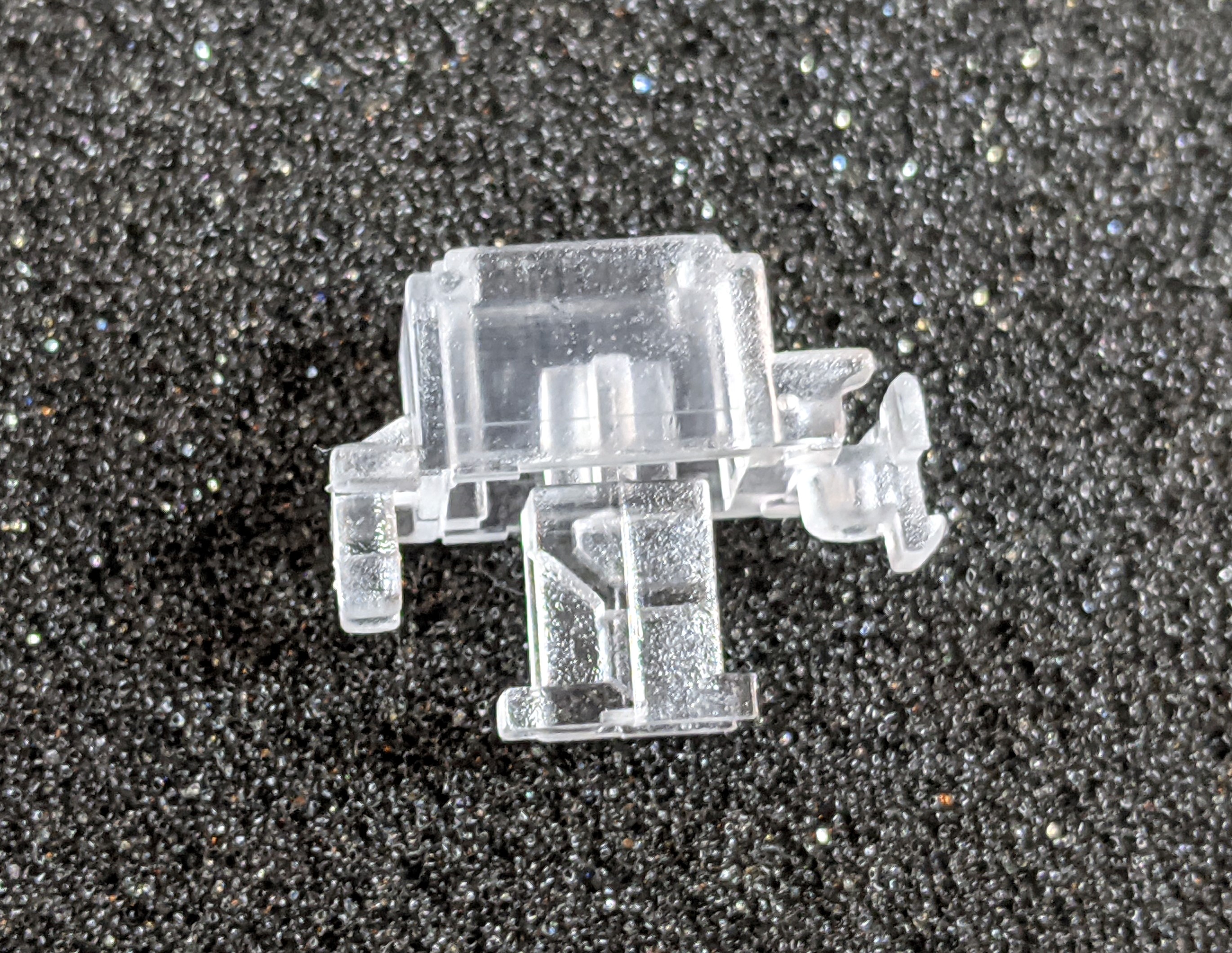
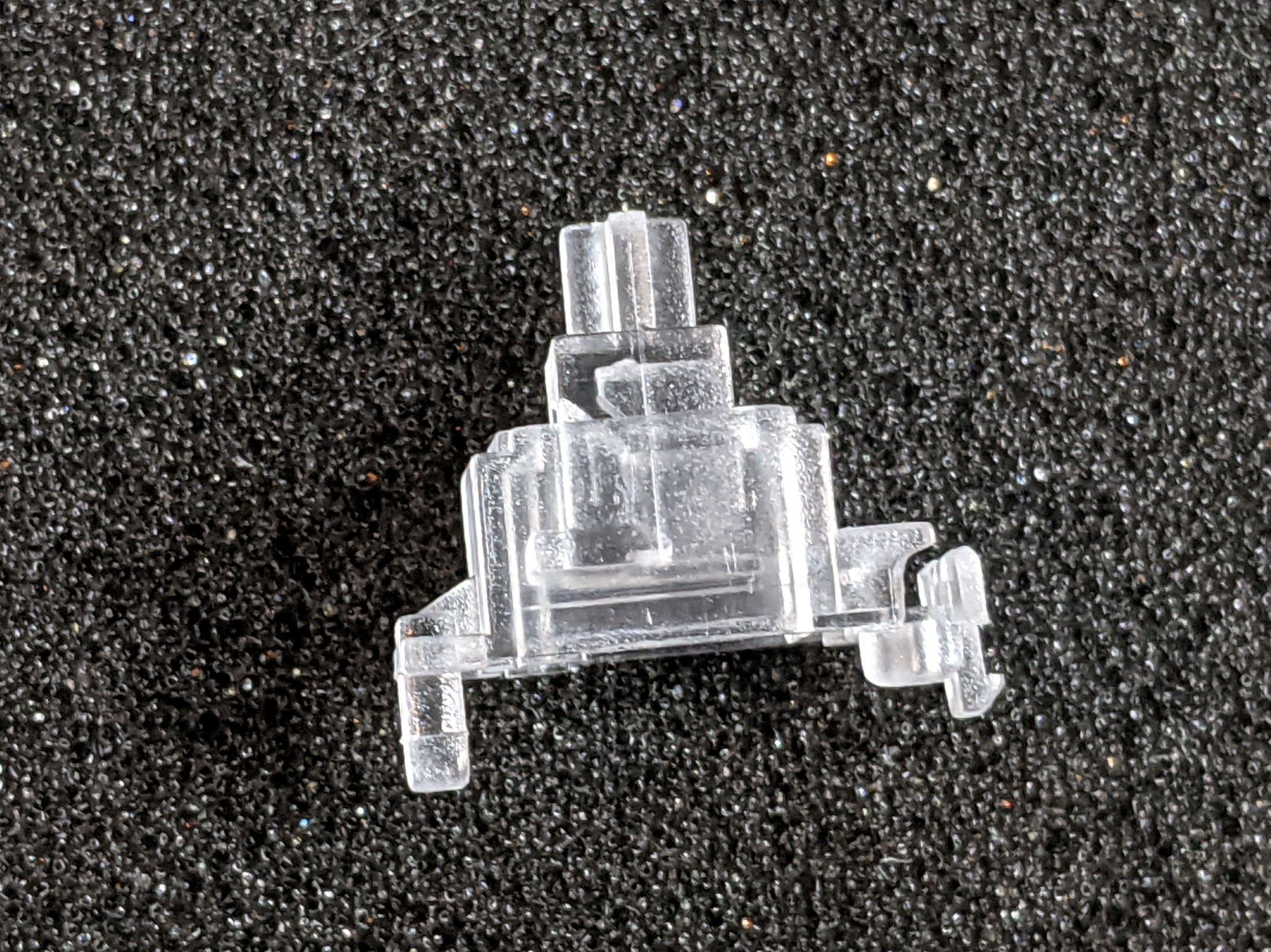
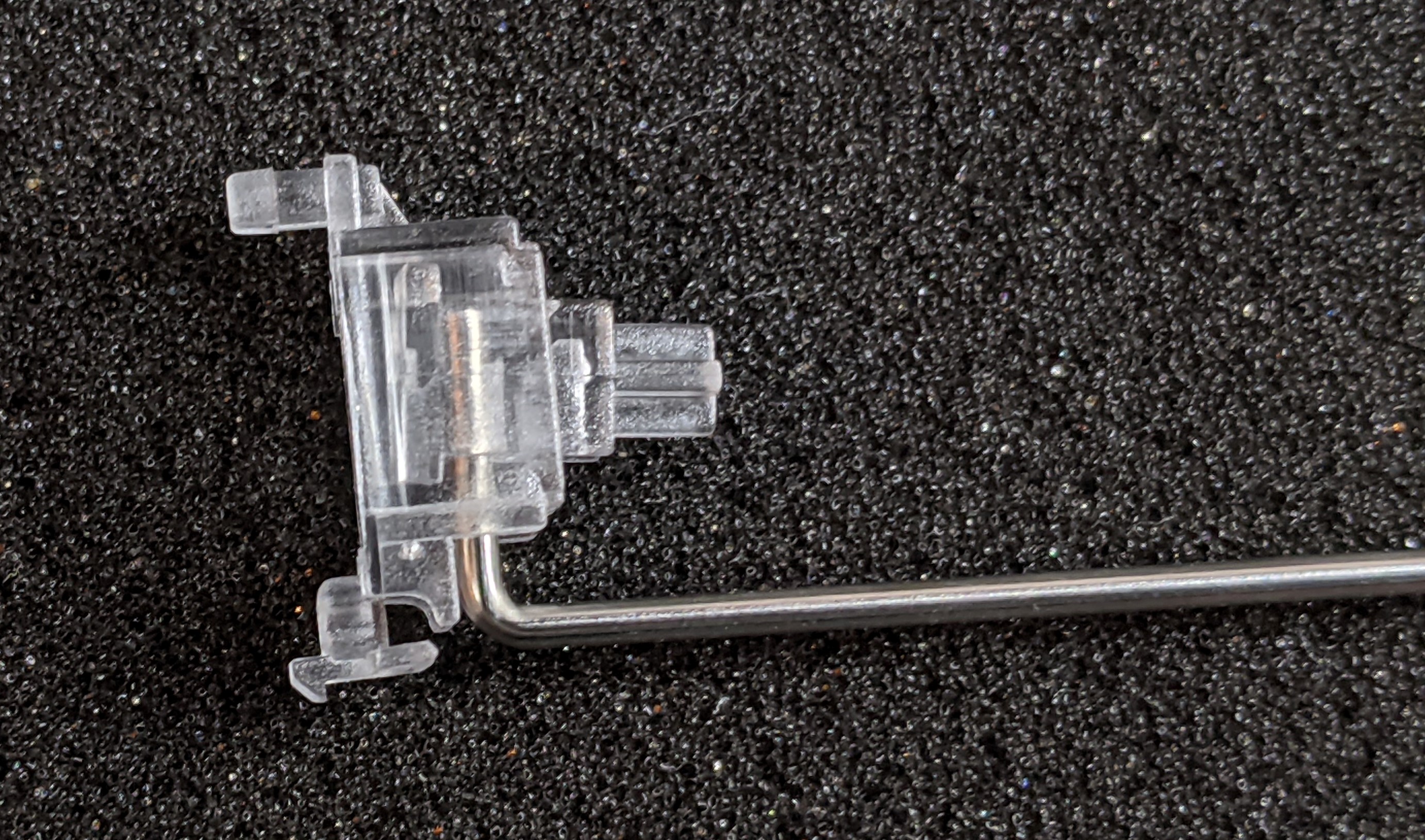
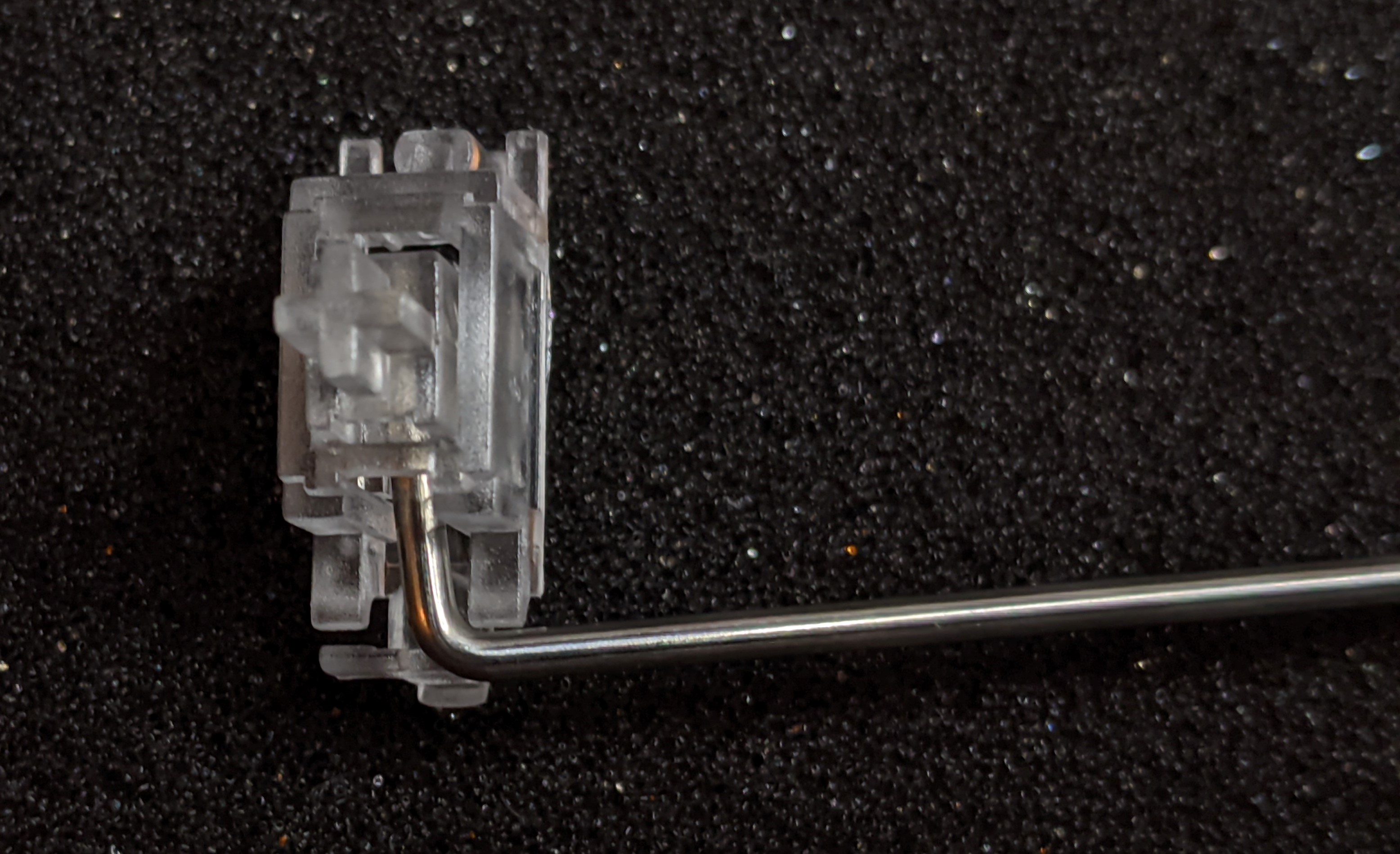
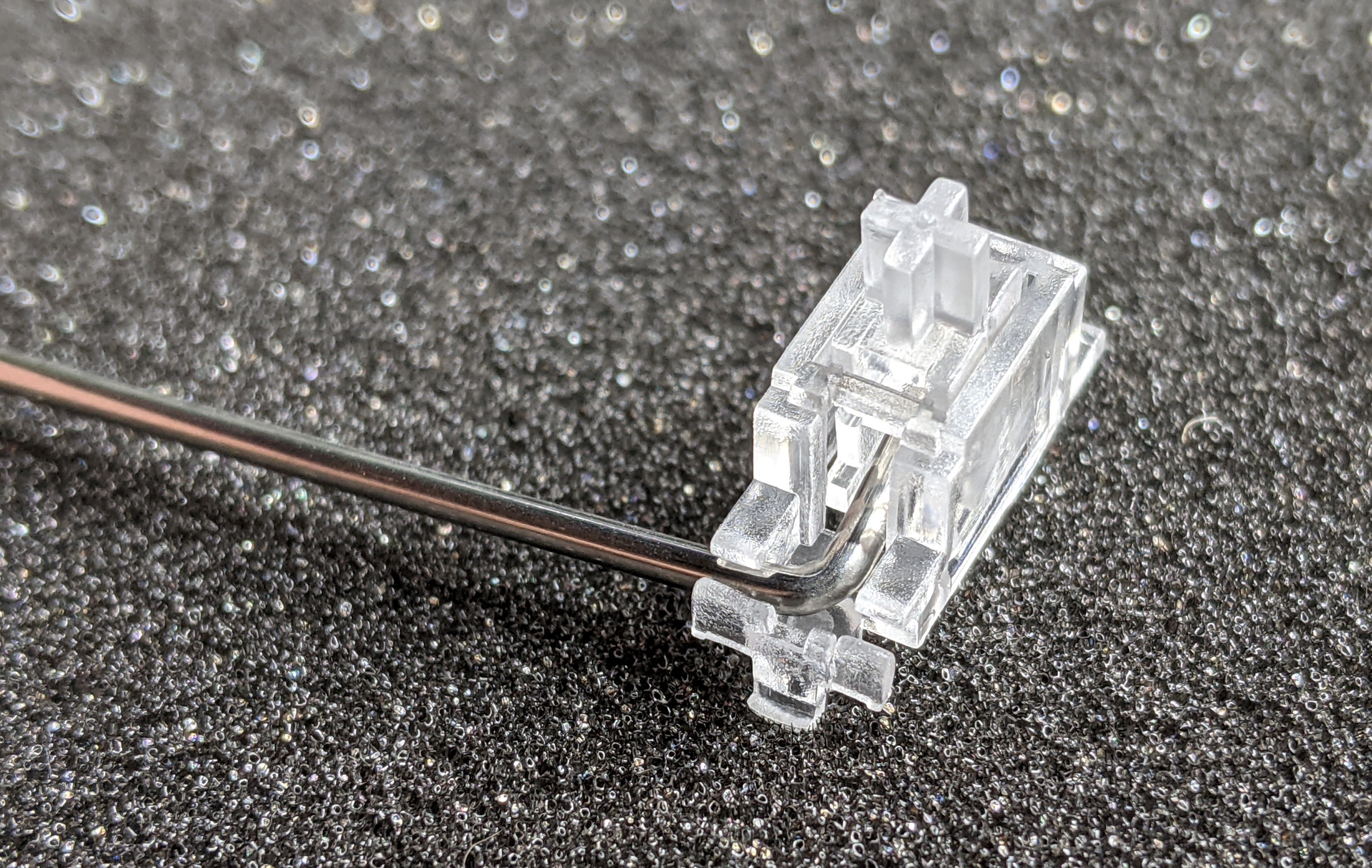
The insert should be able to move up and down as the bar is rotated.
Repeat for the other side of the bar and for the rest of the stabilizers.
Once the stabilizers are assembled, you can now mount them on the PCB as shown below. The insert should be able to be moved up and down freely.
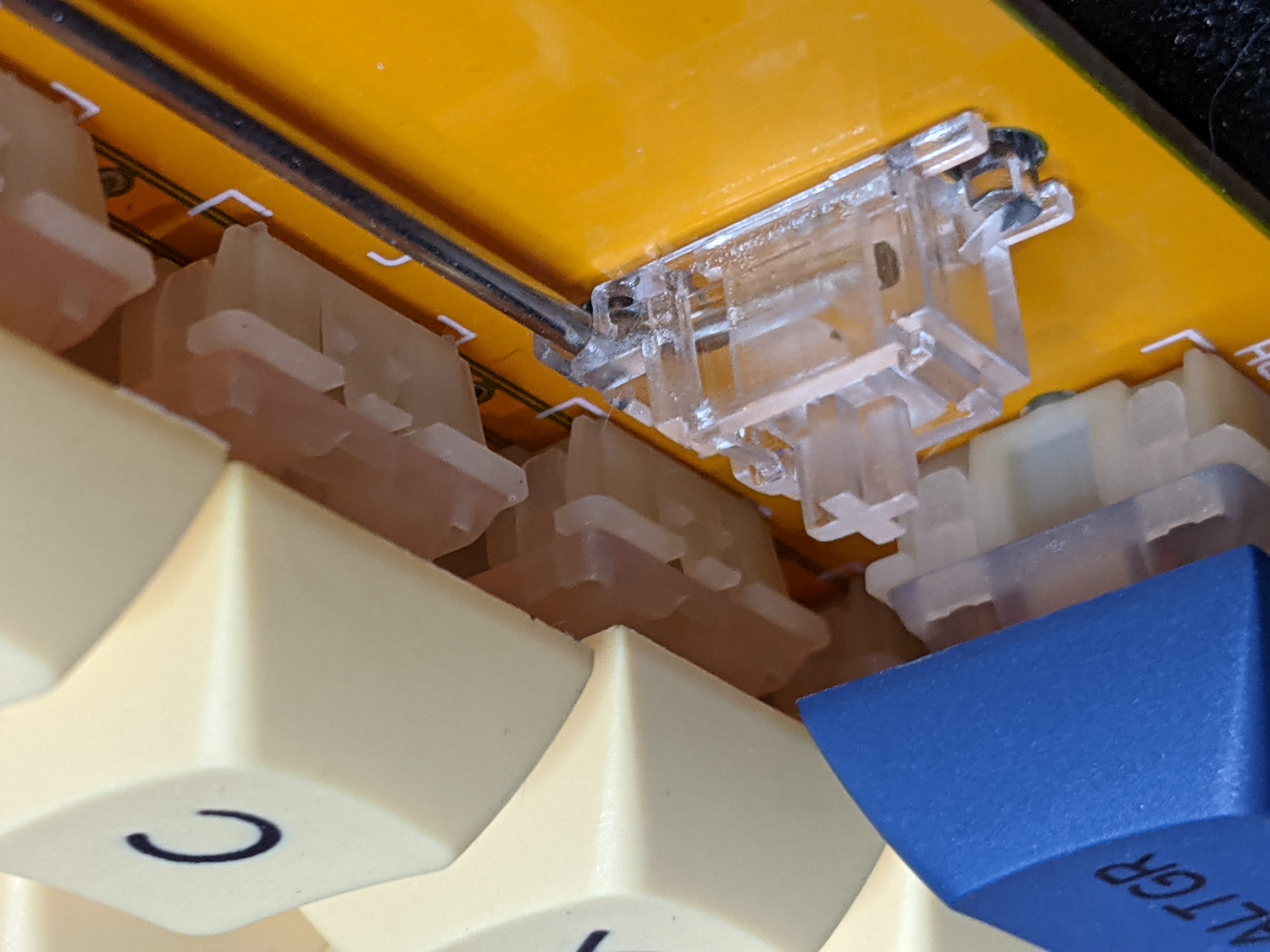
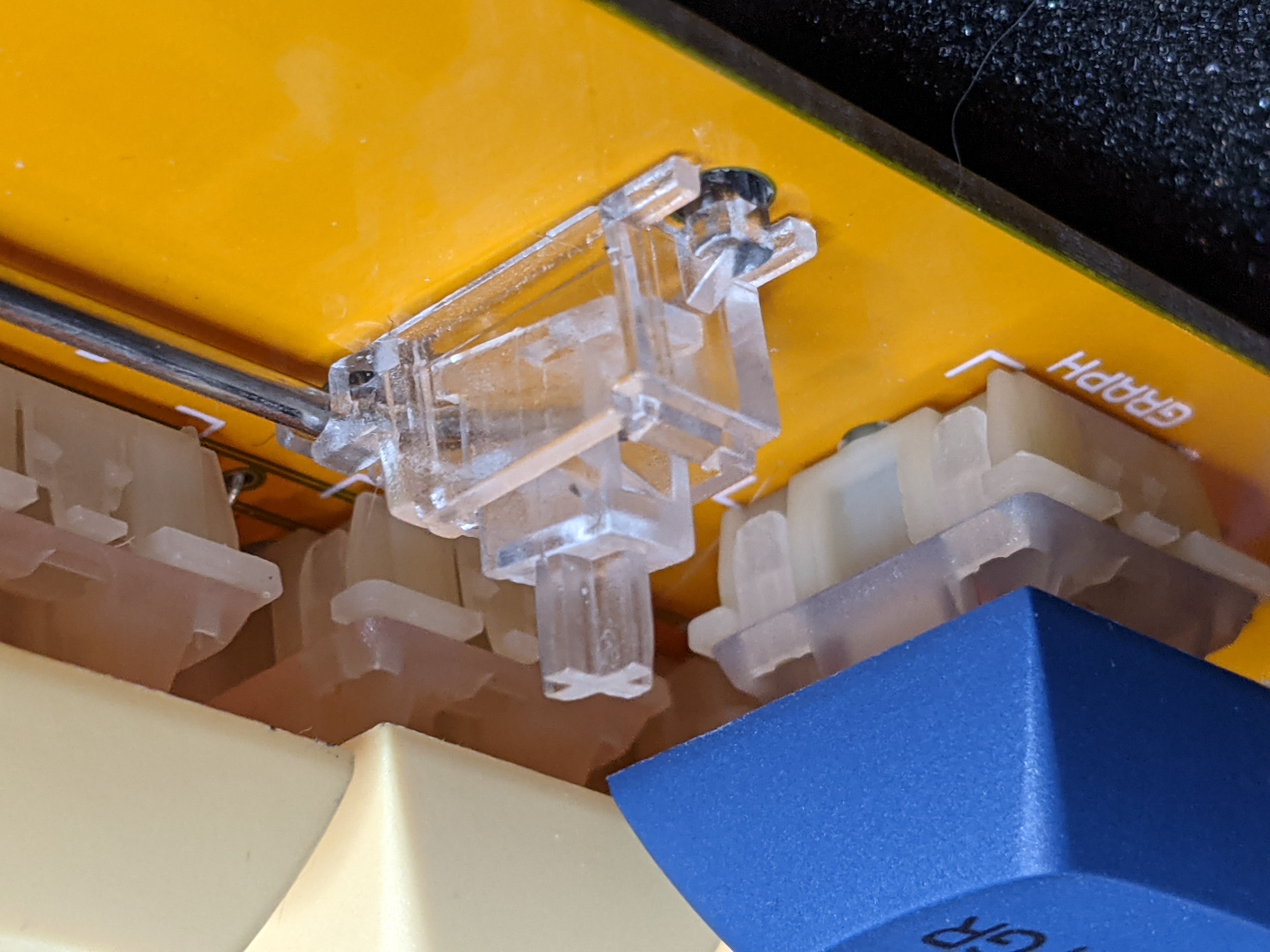
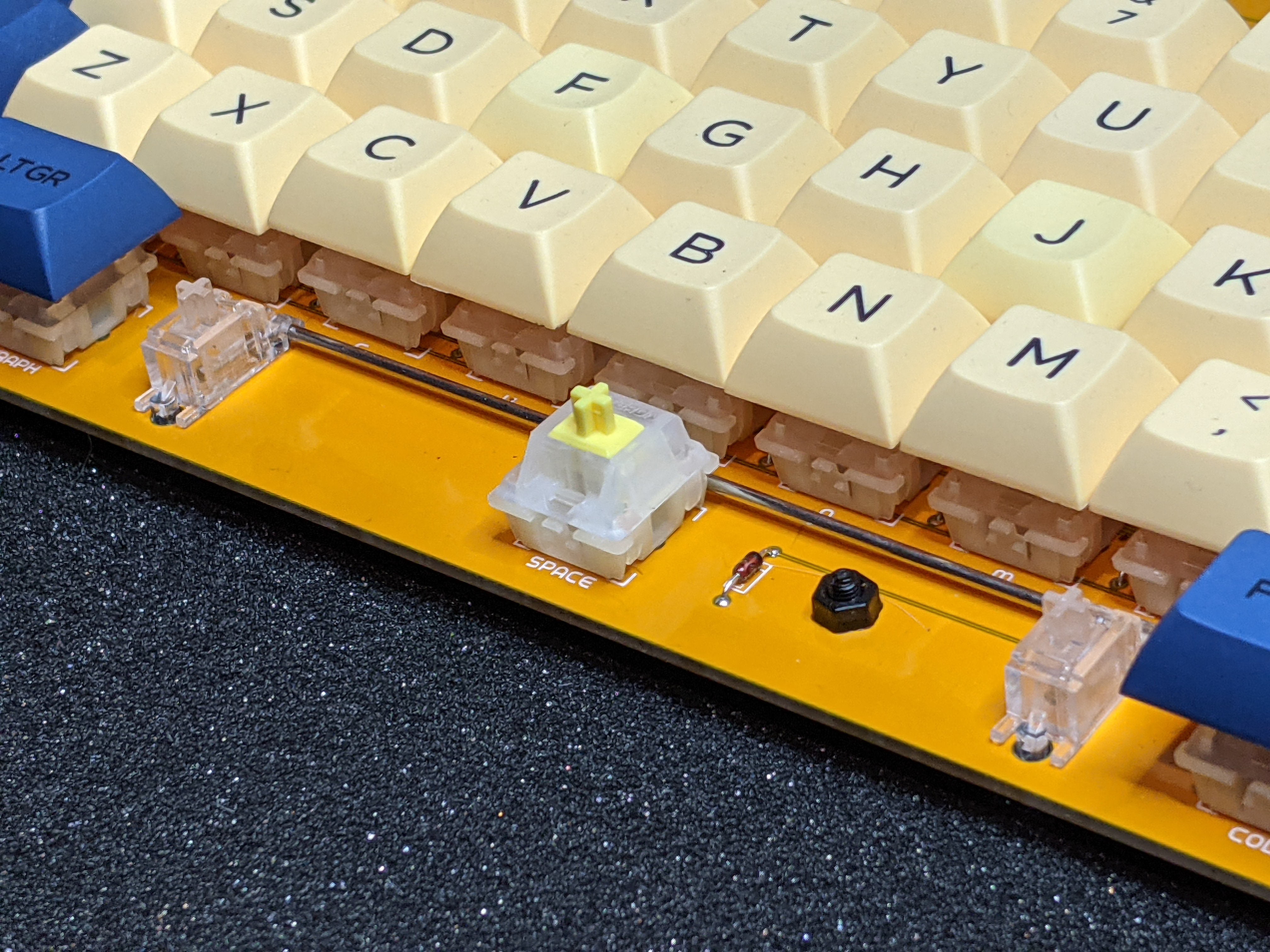
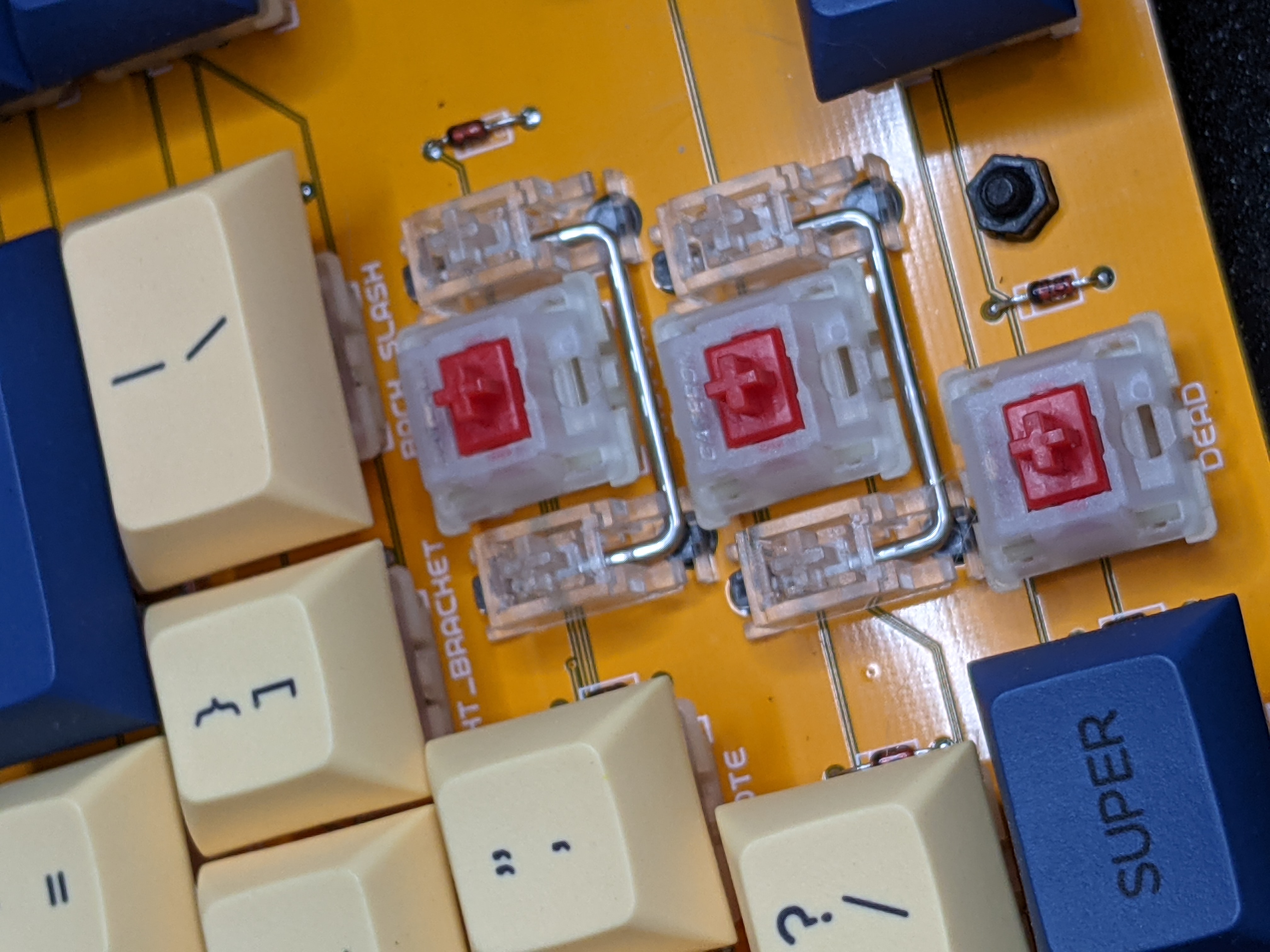
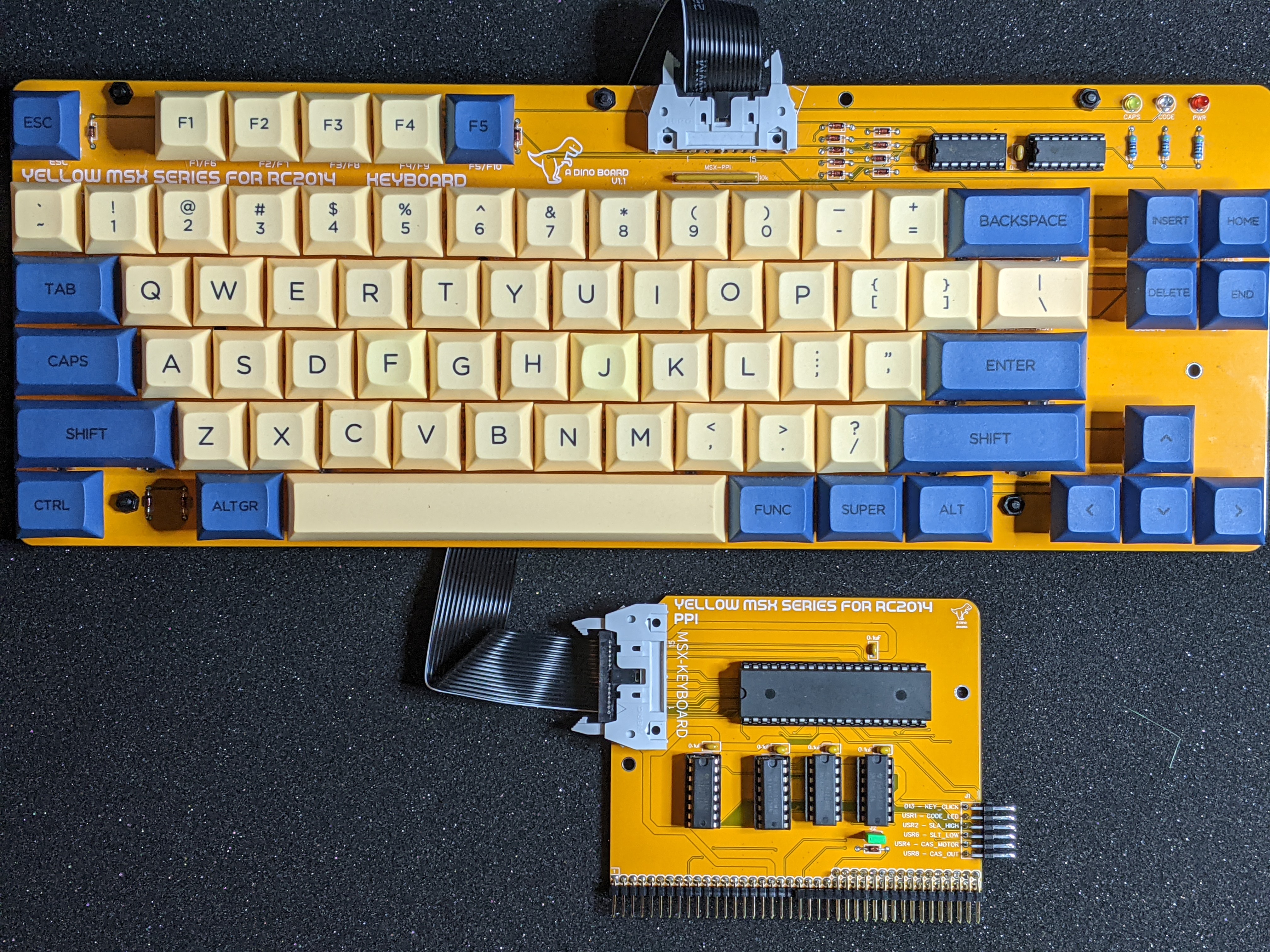
(with V1.6 of PPI)

(with V1.4 of PPI)
Please note that this is a kit, produced by a non-expert (me) for hackers, DIYers’ and retro lovers, to tinker with. Please exercise caution and follow good safety practices. You will be working with sharp knives, a hot soldering iron, and small metal components. Be mindful of the risks involved in the build process. I will do my best to answer any questions you may have.
This kit is provided as-is, with no guarantees or warranties. By assembling and using this kit, you acknowledge that you do so at your own risk.